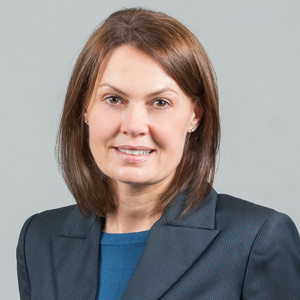
Emily Haithwaite
Group Partner, Ogier Legal L.P. | Legal
Jersey

Emily Haithwaite
Group Partner, Ogier Legal L.P.
Jersey
No Content Set
Exception:
Website.Models.ViewModels.Components.General.Banners.BannerComponentVm
The Proceeds of Crime (Jersey) Law 1999 (the Proceeds of Crime Law) aligns closely with the Financial Action Task Force (FATF) Standards, which comprise International Standards on Combating Money Laundering and the Financing of Terrorism & Proliferation (the Recommendations) and Methodology for Assessing Technical Compliance with such Recommendations. A significant number of entities that operate in or from within Jersey are required to register for supervision under Jersey's regime for the prevention and detection of money-laundering, the countering of terrorist financing and the countering of proliferation financing.
This briefing explains which entities are obliged to register with the Jersey Financial Services Commission pursuant to the Proceeds of Crime (Supervisory Bodies) (Jersey) Law 2008 (the Supervisory Bodies Law) and what actions they must take to comply with the AML/CFT/CPF regime.
The principal law governing Jersey's regime for the prevention and detection of money-laundering, the countering of terrorist financing and the countering of proliferation financing (AML/CFT/CPF) is the Proceeds of Crime Law. Under the Proceeds of Crime Law, it is an offence for a 'financial services business' to fail to implement procedures for the prevention and detection of money laundering. Schedule 2 to the Proceeds of Crime Law specifies certain activities and operations, which when conducted as a business, constitute 'financial services business'. Under the Money Laundering (Jersey) Order 2008 (the Money Laundering Order), any person conducting any financial services business in or from within Jersey, and any Jersey-registered legal entity carrying out such activity anywhere in the world, is required to register with the Jersey Financial Services Commission (JFSC) and put in place specified AML/CFT/CPF measures.
Entities should be mindful of the potentially severe penalties that apply under AML/CFT/CPF legislation, both to the entity itself and to its senior management. In particular, carrying on unauthorised Schedule 2 business is an offence punishable by imprisonment for up to seven years and a fine. In this context, it should be noted that activities and operations conducted by legal arrangements such as trusts or limited partnerships, are carried on by their governing body acting in that capacity. Accordingly, the governing body of a legal arrangement (such as a trustee or general partner) is responsible for compliance with AML/CFT/CPF obligations in relation to the activities or operations it is conducting in relation to the legal arrangement.
AML/CFT/CPF supervision is separate to the conduct of business and prudential regulation. For example, activities based on exemptions to the Financial Services (Jersey) Law 1998 (the Financial Services Law), such as the 'professional investor regulated scheme' or 'connected company' exemptions on which a number of SPV entities rely are caught under Schedule 2 and give rise to the obligation to register under the Supervisory Bodies Law (with the exception of non-professional trustees, in respect of which see further below).
Schedule 2 is broadly framed and the list of activities that constitute 'financial services business' are arranged under the following headings:
The JFSC has published guidance on the interpretation of Schedule 2. This guidance emphasises that the activities in Schedule 2 should be interpreted broadly. Indeed, it is expected that businesses will "favour inclusion over exclusion" when determining whether their activities or operations fall within Schedule 2. In addition, various FAQs and notices issued by the JFSC address matters of scope and interpretation.
There are a number of high level filters that determine whether an activity or operation constitutes financial services business under the Proceeds of Crime Law, namely:
The JFSC guidance includes principles to assist persons in determining whether their activities are conducted as a business, though neither Jersey law, nor the FATF Standards on which it is based, is prescriptive and a qualitative analysis should be undertaken in respect of each activity that a person conducts. The guidance sets out a number of indicators which may support the conclusion that an activity is conducted as a business. These indicators include the following but the list is non-exhaustive and other factors may be relevant:
A further filter should then be applied as follows. In respect of FIs, to be considered as a business the activity must be conducted for or on behalf of a 'customer', in respect of TCSPs, the service must be provided for a 'third party' and, in respect of VASPs, the service must be provided for or on behalf of 'another person'. If they do not, the relevant entity will not be in scope.
According to the JFSC's guidance, in respect of FIs, certain activities will not be considered as being conducted for or on behalf of a customer where:
It is not automatically the case that intra-group activity will be carved out, however, and each activity should be carefully assessed on its facts.
In respect of TCSPs, the concept of providing a service to a third party encompasses similar considerations to those outlined above to identify customers but also extends more broadly. It includes, among other things, anyone who has entered into an agreement for the provision of the services (such as the settlor or instigator, or the beneficiaries of a trust) and anyone who may receive the benefit of the services provided (for instance a limited partner). However, the JFSC's guidance provides that where a person has been established for the purpose of providing a TCSP service, it will be considered as acting as a business unless it is demonstrated to the contrary.
The JFSC's guidance includes more specific commentary on the requirements in relation to private trust companies. Where a trustee is a 'private trust company' (being a person which has notified the JFSC that it is exempt from prudential and conduct of business regulation under the Financial Services Law), it is considered to be acting as a business for the purposes of the Supervisory Bodies Law and will need to register as a Schedule 2 business. Non-Professional Trustees, being individuals who act as trustee in an honorary capacity and receive no fees for so acting, are not required to register as Schedule 2 businesses but are required to comply with certain limited provisions of the Money Laundering Order.
In every case the JFSC's guidance should be considered in view of the relevant entity's relationships with those for whom, or on behalf of, it conducts the activity in question and legal advice should be sought, where appropriate.
All persons carrying on a Schedule 2 activity in or from within Jersey will be required to register with the JFSC, if they are within scope, using the criteria set out above. The JFSC has issued guidance on the interpretation of 'in or from within Jersey' to assist non-Jersey entities to assess whether they are in scope. An entity is considered to be conducting business in or from within Jersey where:
A non-Jersey individual who has a degree of permanence in Jersey (in the sense of having a fixed/service office form which they work while in Jersey, such office being taken in their own name for the purpose of their business activities), will be regarded as conducting business in or from within Jersey. Accordingly, individuals who act as directors of Jersey companies or as trustees of Jersey trusts, will not, in the majority of cases, be required to register with the JFSC in respect of their Schedule 2 activity.
Persons which are in scope must:
The one exception to the above is that a non-professional trustee will continue not to be required to register under the Supervisory Bodies Law in accordance with the Proceeds of Crime (Duties of Non-Professional Trustees) (Jersey) Order 2016, though it will be subject to certain requirements of the Money Laundering Order.
A person may elect to comply with its AML/CFT/CPF obligations in three ways:
Persons that carry on a regulated business, which are not required to register under the Supervisory Bodies Law and which have an established place of business in Jersey (other than provided by a regulated trust company business or fund services business), are not eligible to appoint an AMLSP.
It is anticipated that the majority of persons caught will receive services from a Jersey regulated service provider which complies with the AML/CFT/CPF regime for itself in respect of the relevant entity, so they will engage with that service provider to assist with these obligations.
Nevertheless, the responsibility to comply with AML/CFT/CPF obligations will rest with the person caught (or, where the person is a legal arrangement, its governing body), as will the obligation to comply with applicable sections of the new Code of Practice for AMLSPs and their customers published by the JFSC. The arrangements with an AMLSP must be clearly considered on both sides, both at the outset and on an ongoing basis, and the arrangements should be formally documented and adopted by the respective parties.
Ogier's regulatory team is advising on all aspects of the new AML/CFT/CPF regime, including:
Please contact our team if you would like to discuss.
Ogier is a professional services firm with the knowledge and expertise to handle the most demanding and complex transactions and provide expert, efficient and cost-effective services to all our clients. We regularly win awards for the quality of our client service, our work and our people.
This client briefing has been prepared for clients and professional associates of Ogier. The information and expressions of opinion which it contains are not intended to be a comprehensive study or to provide legal advice and should not be treated as a substitute for specific advice concerning individual situations.
Regulatory information can be found under Legal Notice
Sign up to receive updates and newsletters from us.
Sign up
No Content Set
Exception:
Website.Models.ViewModels.Blocks.SiteBlocks.CookiePolicySiteBlockVm